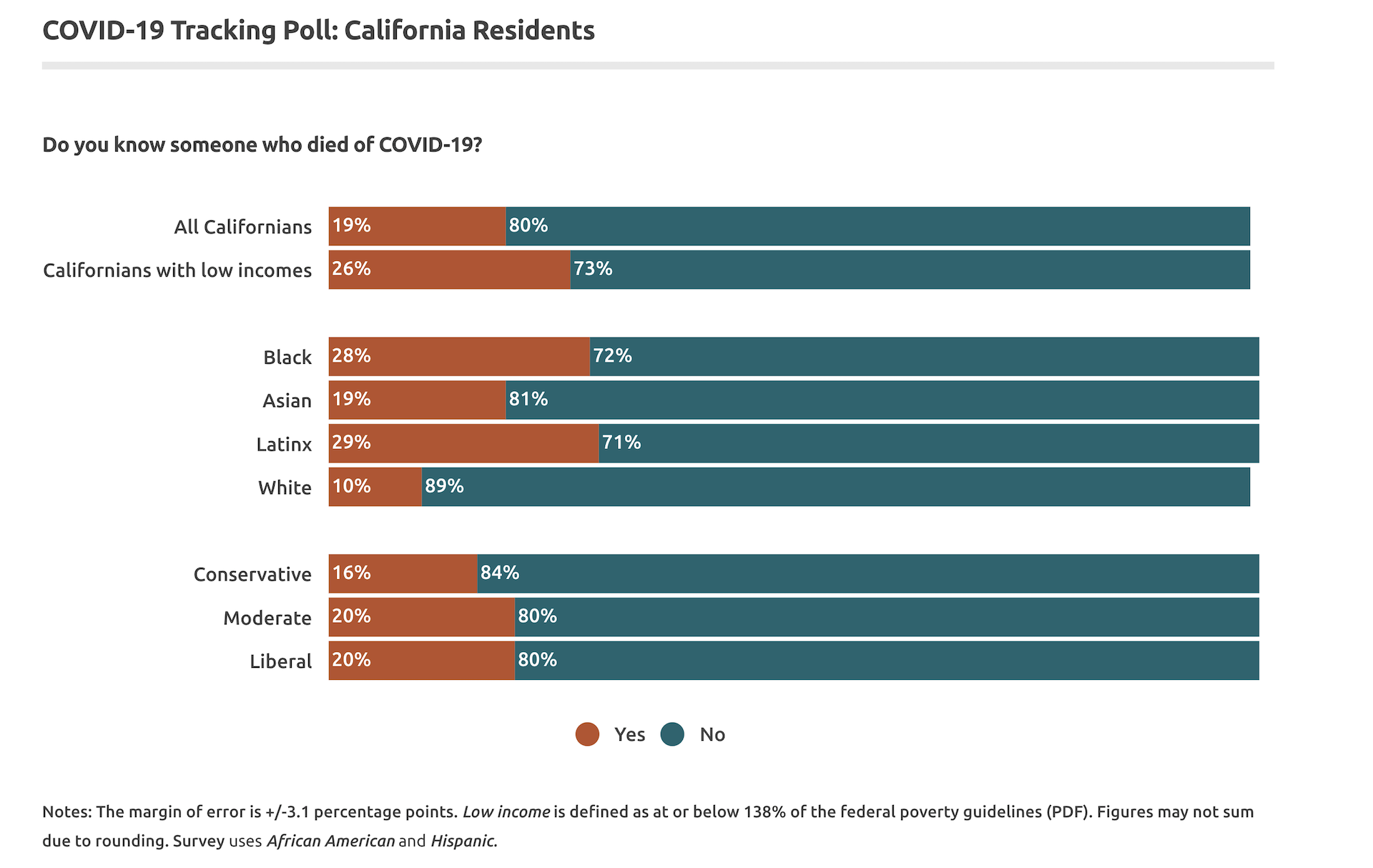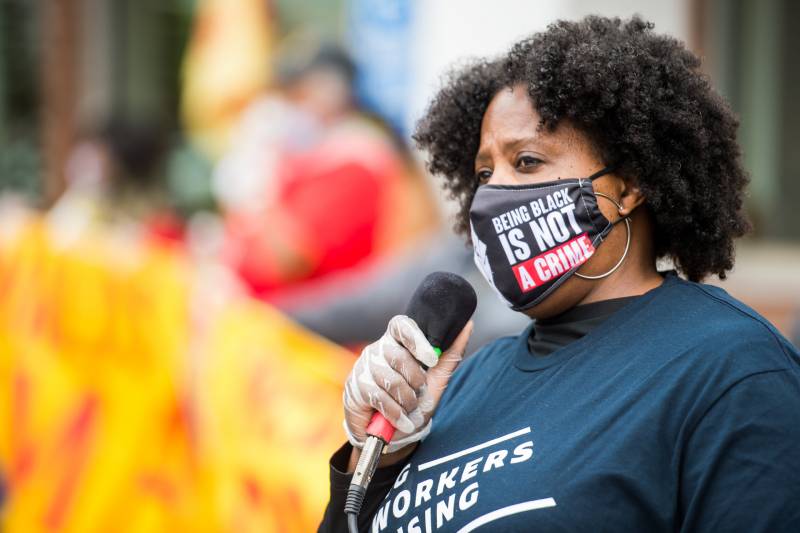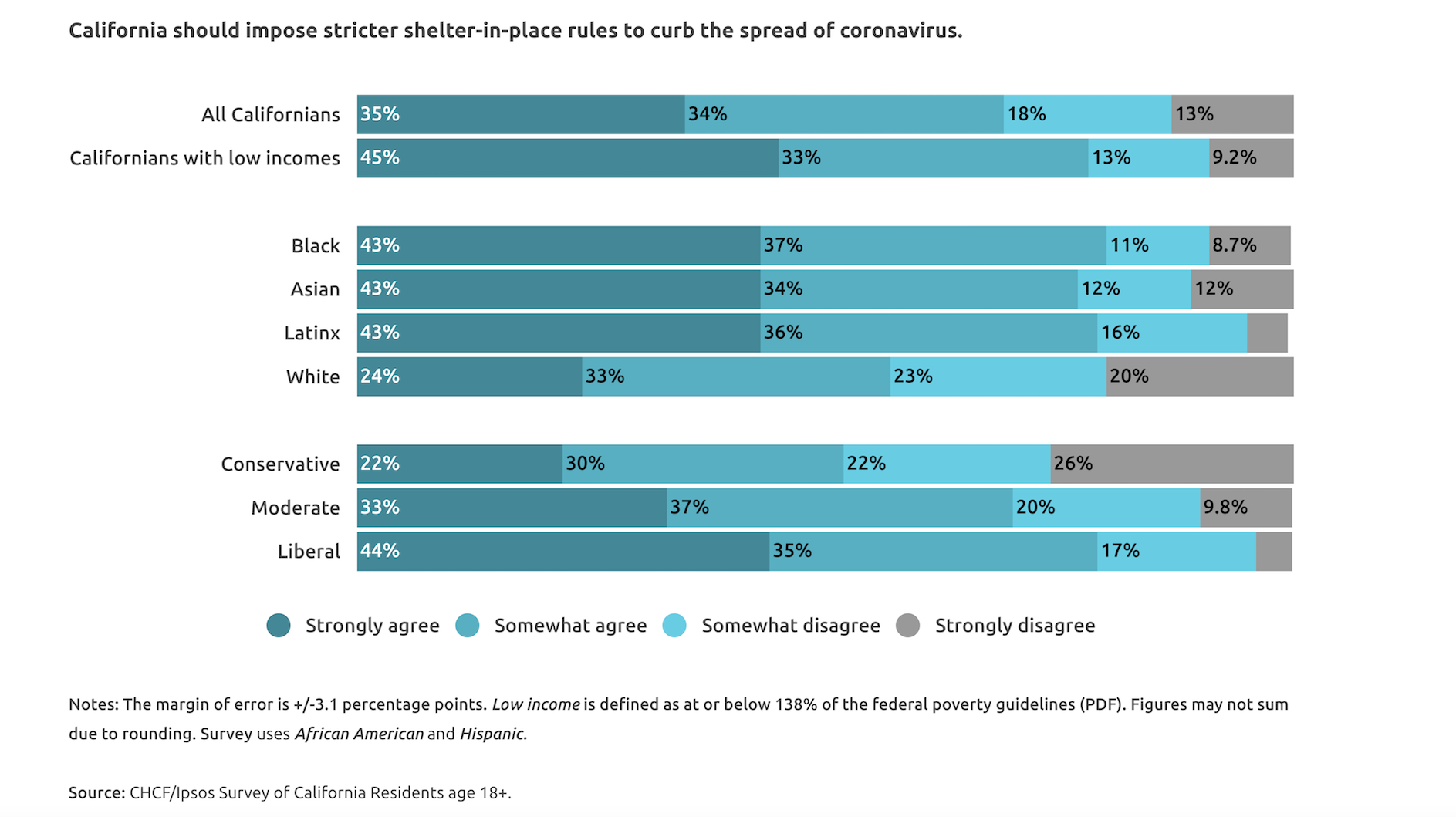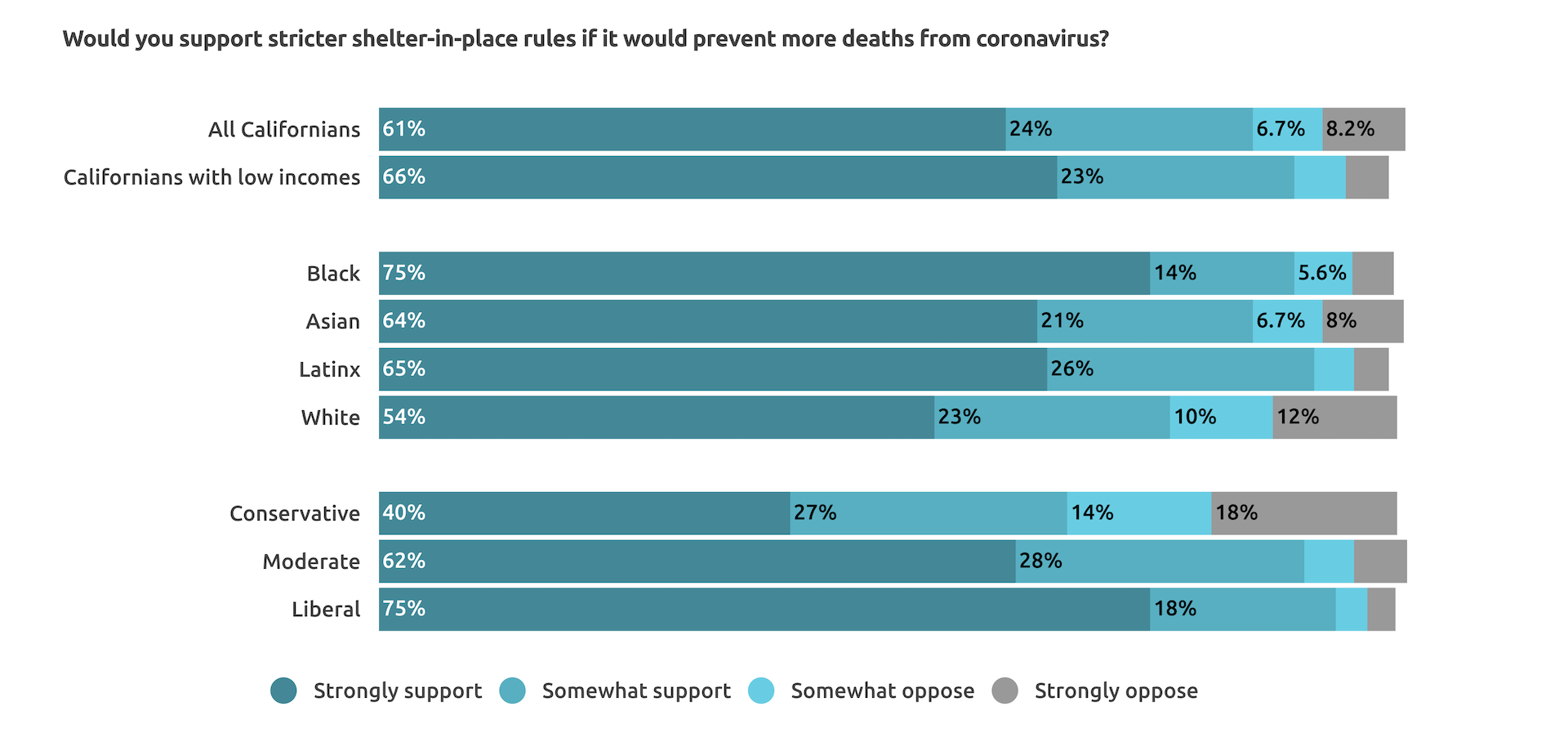Nearly 20% of Californians know someone who has died of COVID-19, a rate that’s significantly higher for people of color and low-income residents, according to a new poll from the California Health Care Foundation (CHCF).
Among respondents, 10% of white people reported knowing someone who had died of the virus, while that rate rose to 29% for Latinx people, 28% for African Americans and 19% for Asian Americans.
Meanwhile, 26% of low-income respondents of all races said they knew someone who had died.

Those discrepancies are not surprising to Andrea Polonijo, a postdoctoral fellow at UC Riverside School of Medicine, where she studies health disparities.
“We know that Black and Latinx populations have disproportionately been diagnosed with the virus and disproportionately have died of the virus,” she said.



